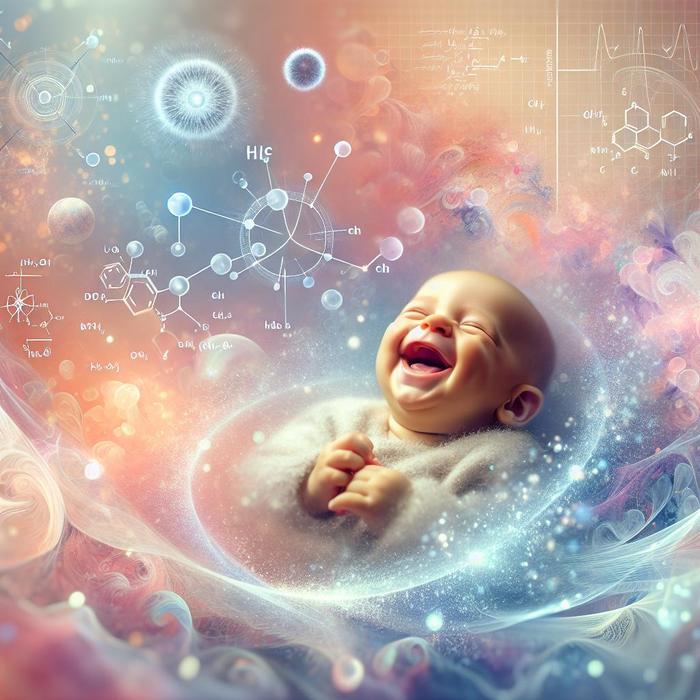Understanding The Science Behind Baby Laughter
Why do babies laugh? It might be one of the most delightful and heartwarming sounds you can hear, but what prompts these tiny tots to burst into giggles? This question has fascinated parents, scientists, and caregivers alike. Let’s delve deeper into the science of baby laughter.
The Phenomenon of Baby Laughter
According to research, babies usually start laughing around their third or fourth month. This coincides with their growing awareness and interaction with the world around them. As they begin to comprehend more, they start responding with smiles and laughter.
Unlike adults, babies don’t laugh at jokes or humorous situations. Instead, surprising sounds, tickling, and active games like peek-a-boo are what usually make babies laugh.
The Different Triggers For Baby Laughter
While specific triggers of baby laughter may vary, there are some common ones that incite the giggles:
- Social Interaction: Often a big smile or a silly face from a parent or caregiver can produce a bout of laughter from a baby.
- Physical Contact: Tickling or gentle pokes often results in adorable giggles.
- Surprises: The element of surprise is a great trigger. Actions like peek-a-boo or a sudden gentle toss in the air can have a baby in splits.
Exploring these triggers can be a deeply bonding experience for parents and babies alike. An engaging discussion on this topic can be found on a Reddit thread where new parents share what makes their babies laugh.
The Science Behind Baby Laughter
Dr. Caspar Addyman, a developmental psychologist, has spent a considerable part of his career studying why babies laugh.
According to Dr. Addyman, the laughter of babies operates on two levels. On a biological level, it is seen as a social bonding tool. On a cognitive level, laughter represents a baby’s understanding of the world.
Laughter as a Developmental Milestone
Laughter is not just a delightful sound; it is a significant developmental milestone too. It’s one of the earliest ways babies communicate their feelings and understanding of their environment.
According to Northwell Health, laughter can serve as an early indicator of a baby’s social, emotional, and cognitive development.
The Correlation Between Feeding and Laughter
Believe it or not, there might be a connection between baby laughter and feeding. A satisfied and well-fed baby is likely to be happier and more responsive to the fun activities that cause laughter. Proper feeding is crucial for baby’s overall wellbeing. This guide on how to manage feeding during illness and understanding the effects of bottle nipple flow rates on feeding success can be helpful resources for new parents.
Understanding why babies laugh can give parents precious insights into their baby’s mind. It’s an exciting journey of discovery that, above all, is filled with joy and laughter.
The Developmental Relevance of Laughter
Laughter during infancy takes on a crucial developmental role. It is believed to contribute to the healthy growth of a baby’s brain as it matures.
This milestone also plays a critical role in social interaction because it supplies babies with a crucial tool to engage and communicate with the people around them. Through laughter, babies can indicate what they enjoy and share their sense of happiness with others.
How Ha Ha Turns into Aha
As they grow older, babies’ laughter evolves from a mere reflex or response to physical and social stimuli into a sign of cognitive recognition. Around their first birthday, laughter becomes less about physical stimulation and more about social interaction and comprehension.
Children begin to laugh at things they perceive as funny due to the incongruity or absurdity. For example, a child might laugh at a stuffed animal being treated as a real one, showcasing their ability to understand the difference between the two.
This stage is highlighted in a post on music to make babies laugh, which mentions how infants even begin to laugh at humorous situations related to music that deviates from their expectations.
Further Research into Baby Laughter
Despite the many theories and observations, the science behind baby laughter is still not entirely understood. Dr. Caspar Addyman continues his research, focusing on identifying the factors that cause babies to laugh distinctively at different stages of development.
Fascinatingly, preliminary studies show that understanding a baby’s laughter could potentially provide early indicators of developmental disorders like autism, opening up a new avenue in pediatric research.
The Healing Power of Laughter
Aside from the developmental benefits, laughter has more immediate effects on the baby’s wellbeing. There is truth in the old saying, “laughter is the best medicine.” When a baby laughs, their body releases endorphins that not only make them feel happy, but also reduce stress and even stimulate their immune system.
Laughter also helps strengthen the bond between the baby and the parent or caregiver. Shared moments of laughter cultivate trust and affection, aiding in the baby’s emotional and social development.
Fostering the Joy of Laughter
As parents or caregivers, understanding the various triggers to make a baby laugh can open up countless opportunities to bond with the little one. It can help foster a joyful and positive environment for the baby’s overall development.
Some suggestions, based on what has been gathered from parents through an enlightening Reddit discussion, include:
- Imitating their sounds or actions
- Blowing raspberries on their belly
- Gently nibbling on their toes
- Making funny faces
- Singing a silly song
Regardless of the specific trigger, it is the warm, loving interaction that essentially evokes laughter. And each laugh, in turn, is a small, jubilant celebration of growing learning, understanding, and joy.

